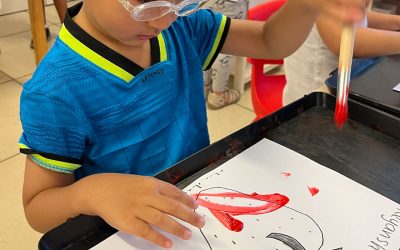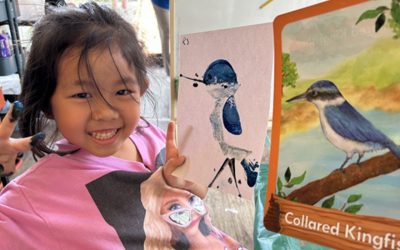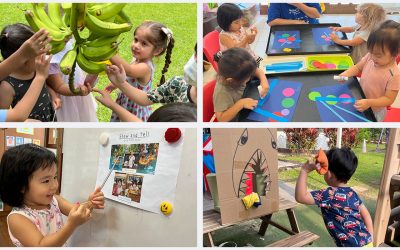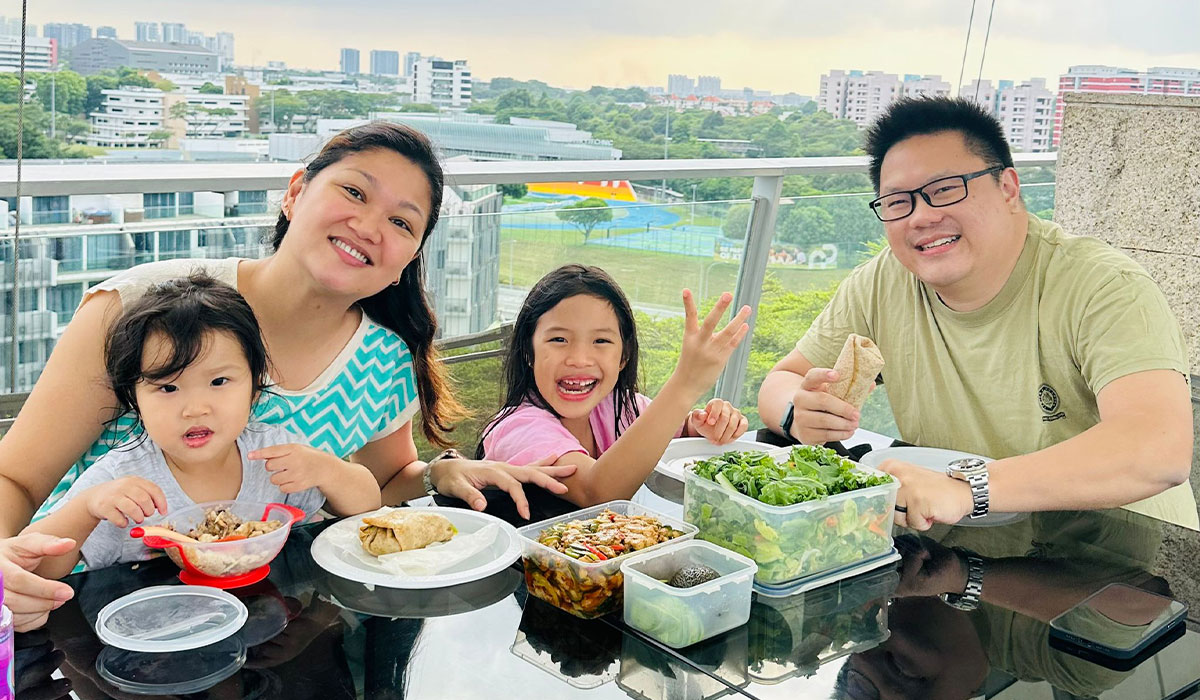
Introduction
Parental involvement is a cornerstone of early childhood development. By creating a nurturing home environment, you help extend your child’s learning beyond classroom walls, making preschool education a shared journey between parents and teachers.
When parents actively engage in their children’s preschool education, we don’t just boost their language skills, problem-solving abilities, and adaptability in the short term. We lay a solid foundation for their understanding of social norms and behaviours, fostering a lifelong curiosity and love for learning that will continue to benefit them in the years to come.
In this article, you’ll learn why parental involvement is crucial, detailing its benefits to your child’s preschool years. We’ll also delve into Joyce Epstein’s Six Types of Involvement and provide practical tips on how you can participate in your child’s preschool education.
Why Parent Involvement Matters in Early Childhood Development
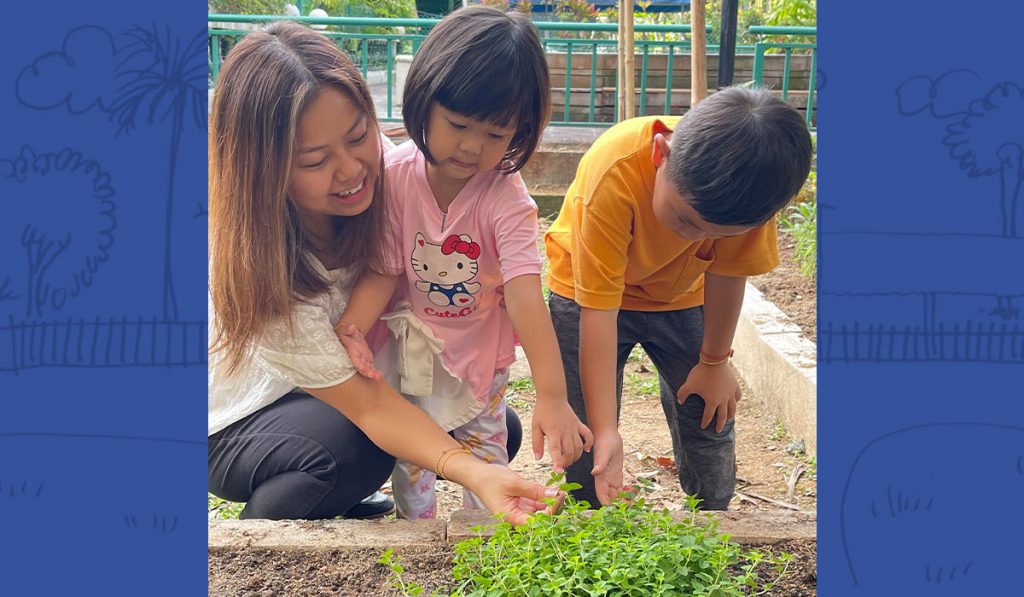
Being actively involved as a parent matters in nurturing your child’s early development. Here’s why.
Firstly, it fosters a positive attitude towards learning and education from an early age. By actively participating in your child’s education, you demonstrate the value of learning and help to shape them into eager and enthusiastic learners.
Engaging in interactive activities with your child boosts their language development and communication skills. When you read together, engage in conversations, or play language-based games, you expand their vocabulary and ability to express themselves.
By creating engaging learning experiences, you can support your child’s problem-solving skills. Activities like puzzles, art projects, or science experiments stimulate your child’s cognitive development, and help them think critically and creatively.
Being actively involved in your child’s education further promotes adaptability and resilience. When you are present and engaged, your child feels more secure and confident. This helps them to navigate challenges and adapt to new situations.
Another significant benefit is enhancing your child’s understanding of social norms and behaviours through modelled interactions. When you model positive behaviours like cooperation, generosity, empathy, and respect, your child is more likely to adopt these behaviours themselves.
Your involvement also builds a foundation for lifelong learning habits and curiosity. When you show an interest in learning and encourage your child to explore new topics, it instils a thirst for knowledge.
Being actively involved helps you detect and get support for developmental delays or learning challenges. This allows for timely intervention and support, which can significantly improve outcomes for your child.
Additionally, it strengthens the alignment between the preschool’s educational goals and your expectations. This helps to create a consistent learning environment that reinforces your child’s educational progress.
Cultivating a sense of belonging and security is vital for making your child more receptive to new experiences. When your child feels that you are invested in their education, they are more likely to feel secure and confident.
Finally, as an involved parent, you can encourage a healthy lifestyle through physical activity and nutritious eating habits. When you play sports or cook nutritious meals together with your child, you promote healthy habits that can last a lifetime.
The Six Types of Parent Involvement
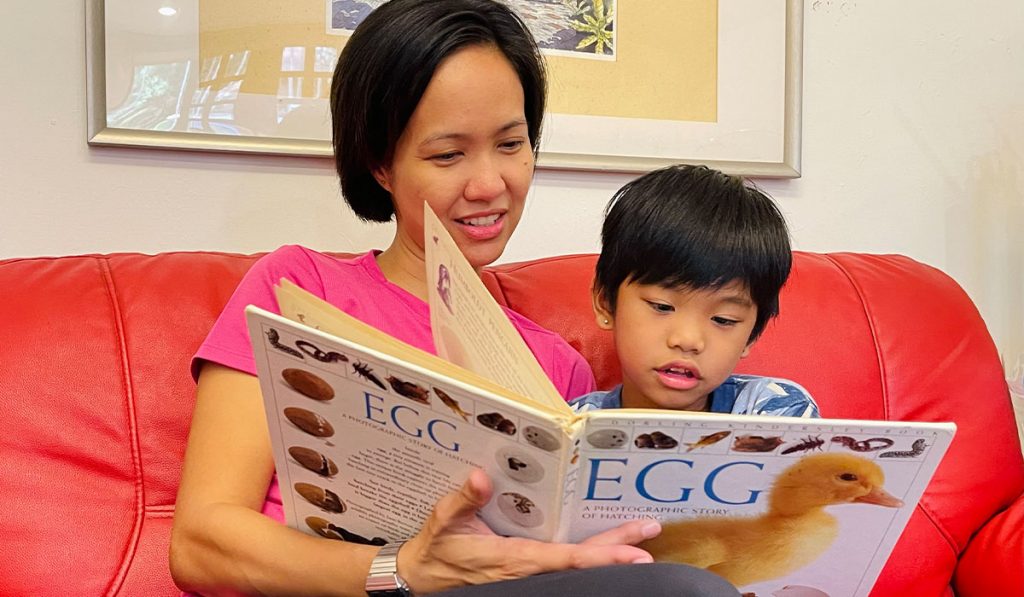
To understand how parents can be involved, let us look at Joyce Epstein’s Six Types of Involvement. Anchored on six key areas, it fosters collaboration between parents, schools, and communities.
Parenting involves developing and implementing effective practices to support your child’s learning and development at home. For instance, you lay a strong foundation for their overall well-being by promoting a healthy lifestyle, including physical activity and nutritious eating habits.
Communicating is about establishing open channels of communication between home and school. Regular updates through newsletters, emails, and parent-teacher meetings keep you informed about your child’s progress and school activities, ensuring you remain engaged in their education.
Volunteering allows you to participate directly in your child’s school experience. By volunteering in the classroom, on field trips, or for special school projects, and assisting in organising school events and fundraisers, you strengthen the school community.
Learning at Home involves engaging in educational activities, reading, and playing with your child to boost their academic performance and cognitive skills. Providing support and resources for homework and other curriculum-related activities further ensures continuous learning outside the classroom.
Decision-making matters, too. Participating in parent committees or advisory boards allows you to shape decisions affecting your child’s education.
Lastly, Collaboration with the community involves building partnerships with local businesses, organisations, and public institutions to enrich educational programmes. Organising community-building events fosters community among parents, teachers, and students, enhancing the overall academic experience.
Examples of Parental Involvement in a Kindergarten

To help you apply Epstein’s framework in your child’s kindergarten, here are some ideas of what you can do as a parent:
- Parenting: Establish a routine for reading before bedtime to foster literacy skills and a love for learning.
- Communicating: Use school-provided platforms to stay updated and share your child’s achievements or concerns with teachers.
- Volunteering: Assist in organising class parties or accompany the class on field trips to places like the zoo or botanical gardens.
- Learning at Home: Engage in simple science experiments at home, like growing a plant from a seed, to connect with your child’s kindergarten science curriculum.
- Decision Making: Join the kindergarten’s parent-teacher association (PTA) or any other body to contribute ideas on improving school programmes and policies.
- Collaborate with Community: Participate in local community events or projects with your child that the kindergarten supports or sponsors, such as a beach clean-up day.
Active parental involvement in kindergarten creates a supportive environment. It helps parents better understand the curriculum and educators’ expectations, builds a strong community, and improves communication between home and school.
This leads to better educational outcomes for your child.
How Heartfield Actively Engages Parents
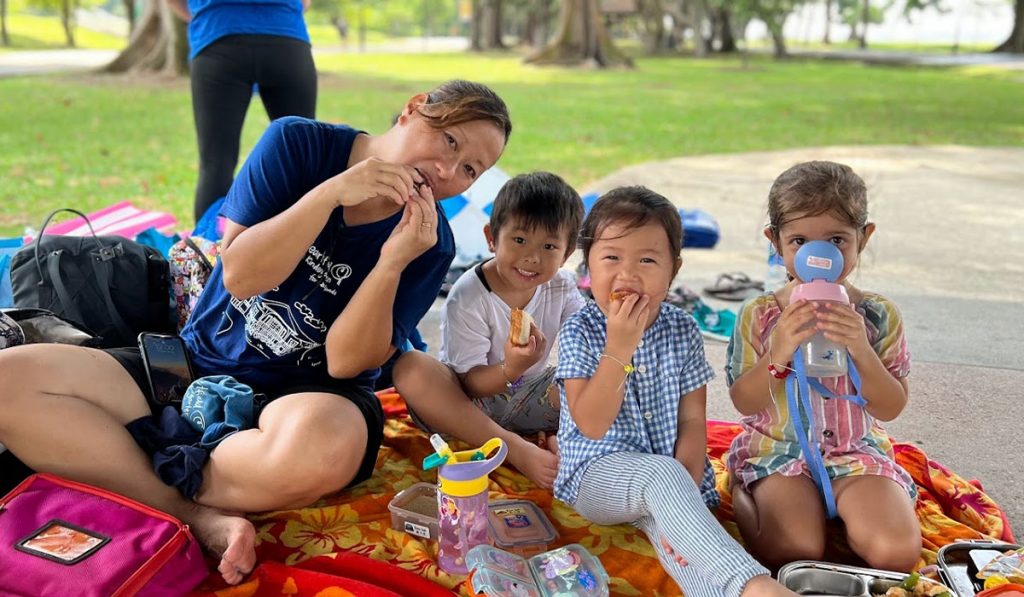
As parents ourselves, we appreciate your keen desire to shape your child’s growth and development actively. This is why we’ve developed four ways to foster closer parental involvement at Heartfield Kindergarten:
1) Open Communication Channels: We keep parents informed and engaged through regular updates via newsletters, emails, and parent-teacher meetings. For our youngest students, we provide daily updates, while older classes receive weekly updates that include photos, videos, and detailed captions.
2) Parental Engagement Activities: All parents are invited to participate in class activities, workshops, and school celebrations. These events are designed to help you connect with your child’s educational environment and to play an active role in their learning.
3) Educational Support Resources: We also offer resources (like this article) to help you extend your child’s learning at home. They are tailored to complement our curriculum and provide practical tips and activities that you can easily incorporate into your daily routine.
4) Community Building: Last but not least, we organise events to bring parents, teachers, and staff together, creating a sense of belonging and shared purpose. These events are opportunities to build relationships, share experiences, and support each other.
Located at 31 Balmoral Road, Heartfield is ideal for parents seeking a supportive community for their child’s early years. To learn more, contact us at tel: +65 6835 2354, email: info@HeartfieldKindergarten.com, or visit our contact page.
